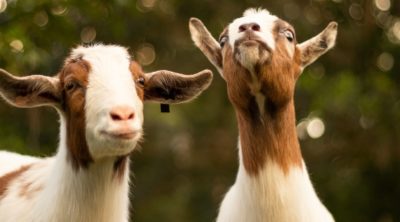If you have always wanted exotic pigs as pets, consider rearing miniature pot-bellied pigs. With proper care, you can enjoy their wonderful company for a long time.
Miniature pot-bellied pigs are the latest pet craze amongst animal enthusiasts. Piglets are adorable to watch and play with, but the main concern is their rapidly growing size.
With increased interest in keeping pigs as pets, a 25-year breeding program was initiated to create small versions of farm pigs in the 90s. It was this program that introduced healthy miniature pot-bellied pigs to the world. They were small in size and thus, perfect for keeping as pets.
If you keep these pigs as pets, size is not an issue as the genes of this breed are modified in such a way that even at maturity, they retain their small size. As long as they feed on healthy diet and perform regular exercise, optimal health is expected. On the contrary, fatty foods and less physical activity can lead to weight gain and health problems.
Don’t get fooled by advertisements that call these pigs ‘teacup pigs’ though, as the ‘teacup’ size only exists at their birth. At full-growth, these pigs weigh about 30 – 60 lbs. They mature within 2 – 3 years of birth. So, you can imagine the size of these pigs. Their prospective lifespan is approximately 15 – 20 years.
Miniature Pot-bellied Pigs as Pets
Housing
The most important aspect to be considered while planning to keep them is their dwelling. You can think of constructing a sufficiently large pen. Ensure that the temperature of the pen is maintained at 70 °F or a little higher. Besides this, they need cooling in warm weather. In such a case, you can take them out in the yard or to the pool to cool down.
Temperament
These pigs are clean, gentle, lovable, intelligent, and trainable. However, they can be destructive at times, specially when kept on an empty stomach for a long time. They seldom bite humans, but it’s better to be careful; especially if you have kids. You will have to keep a close supervision on these pigs, particularly in the first few weeks of training.
Feeding
Specially formulated foods are available in pet stores for feeding these pigs. You can supplement these foods with fresh fruits, vegetables, and cooked dishes. As we all know, all pigs have a quest for food.
Be sure to feed your pigs at regular intervals. Plan a feeding program, and they will get used to it. Additionally, make sure that adequate amount of clean water is available to them.
House Training
House training pigs is not as difficult as you think. You can train them to defecate in litter box or outside. In the first few days, you can take them outdoors after they wake up, and after you feed them.
While indoors, you can confine them in a small area with the litter box. Within a short time, they will catch on the defecation routine. In case of accidents, wipe the area with vinegar or pet stain removal.
Grooming
Regular brushing, bathing, and trimming of hooves are some routine grooming activities necessary to keep your pet at its best. These pigs require physical movements to remain healthy and control weight. Whenever you are free, take them outdoors and play with them. Do not forget to give them vaccine shots as per the recommendations of the veterinarian.
If you plan to adopt miniature pot-bellied pigs, you should get well-versed with the grooming tips beforehand. After all, you want the best for your pet pig and yourself. With correct instructions, you will succeed in training these pigs. They make wonderful companions, no less than dogs, provided you give enough attention to their needs.
